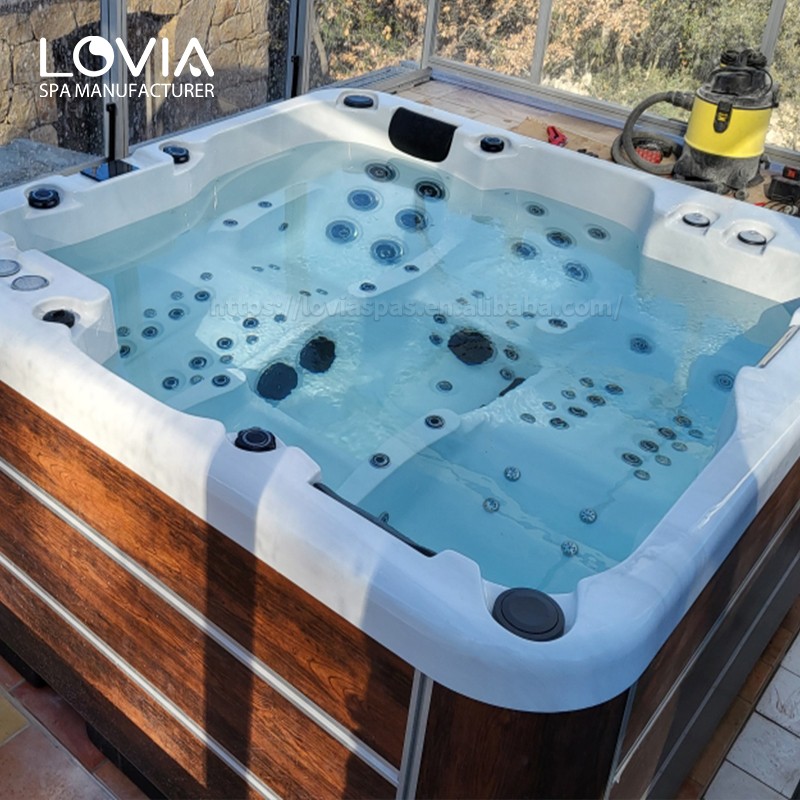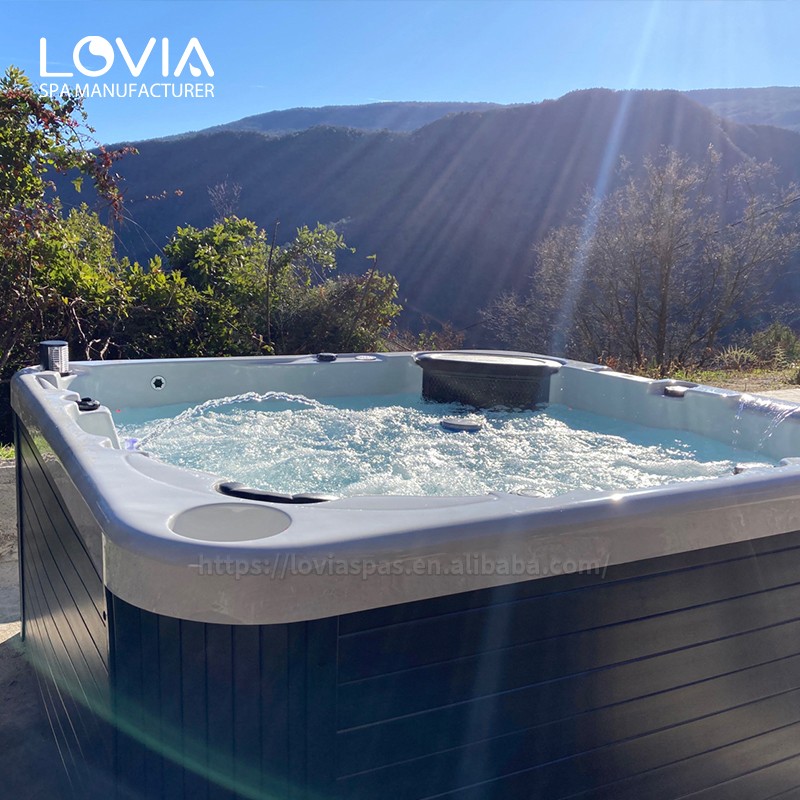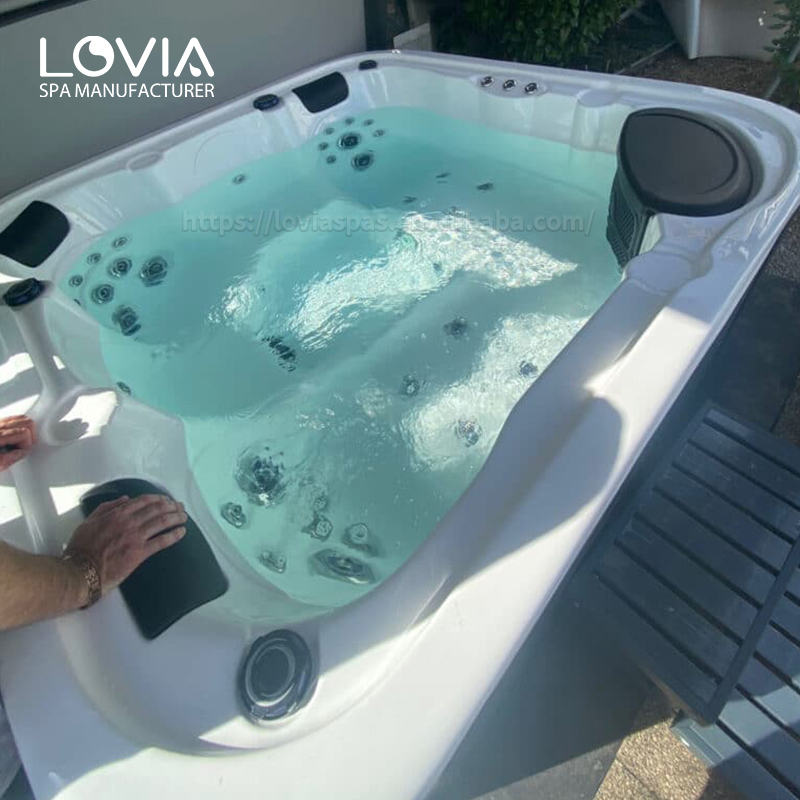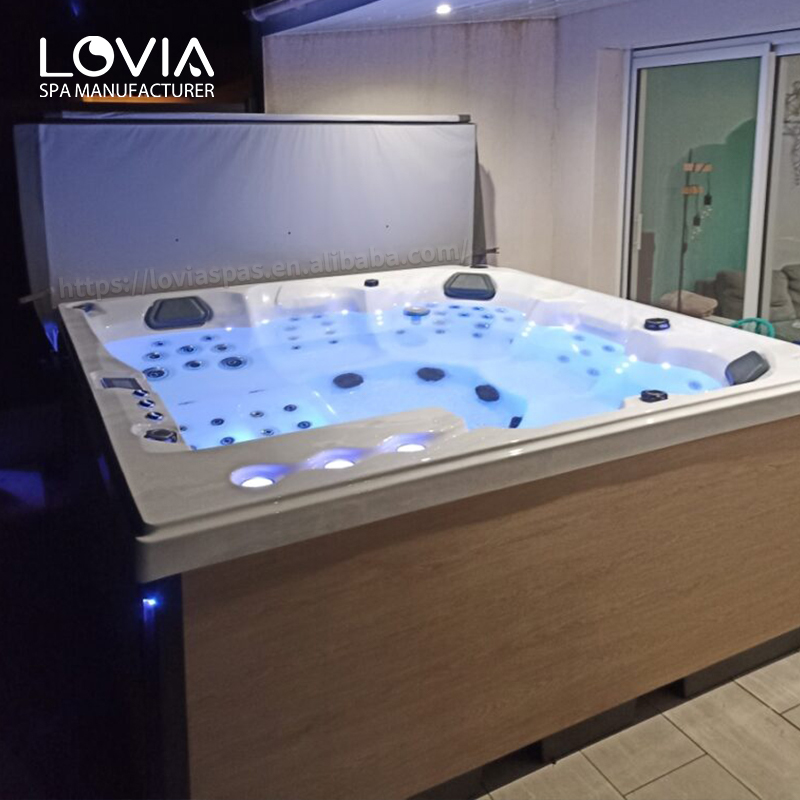
Is soaking in a hot tub good for the body in winter?
2024-12-23 15:30In winter, the cold climate often makes people feel tired and stiff, and soaking in a steaming hot bathtub is undoubtedly an attractive way to relax. Soaking in a hot tub has become a part of modern people's lives, especially in the cold winter, many people like to warm up their bodies and relax their minds and bodies by soaking in a hot tub.
So, is soaking in a hot tub in winter really good for the body? This article will explore the benefits of soaking in a hot water tub in winter from the aspects of health, psychological adjustment, sleep quality, muscle and joint relief, immune system, etc., and analyze its potential risks.

Five benefits of soaking in a hot bathtub in winter:
1. Warm the body and promote blood circulation
2. Soothe muscles and relieve joint pain
3. Improve mental health and reduce stress
4. Improve sleep quality
5. Enhance immune function
1. Warm the body and promote blood circulation
In winter, the temperature is low. When the body is exposed to the cold environment, blood vessels contract and blood flow slows down, which can easily lead to cold limbs, stiff muscles, and even poor blood circulation. When soaking in a hot tub, hot water can quickly warm up the body, the capillaries on the surface of the skin dilate, blood flow accelerates, and blood circulation is effectively improved. This is beneficial to many aspects of the body.
Improve peripheral blood circulation
Cold weather in winter often causes cold hands and feet, especially for people with poor blood circulation, such as the elderly or those with cardiovascular disease. Soaking in a hot tub, especially a hot bathtub with a moderate temperature, can effectively dilate peripheral blood vessels, promote blood flow to the limbs, and help relieve the symptoms of cold hands and feet.
Prevent cardiovascular and cerebrovascular diseases
Winter is the peak season for cardiovascular and cerebrovascular diseases. Cold temperatures can cause blood vessels to constrict and increase blood pressure, thereby increasing the burden on the heart and brain. Through the thermal therapy of a hot water tub, blood vessels dilate and blood flow becomes smoother, which can relieve the pressure on the cardiovascular system to a certain extent and help reduce the risk of hypertension and other cardiovascular diseases.
Help the excretion of metabolic waste
When soaking in a hot tub, as blood circulation accelerates, the body's metabolic waste can also be discharged faster. The pores on the skin expand in hot water, and sweating increases, helping to remove toxins from the body. While this effect may not be as significant as the detoxification effect brought by strenuous exercise, the gentle approach of a hot tub is more suitable for winter health needs, especially for those who do not exercise regularly.

2. Soothe muscles and relieve joint pain
In the cold winter, low temperatures often cause people to feel muscle stiffness and joint discomfort. For many people with arthritis or other chronic pain problems, the low temperatures in winter can aggravate the discomfort symptoms, and hot waater tubs can provide a warm and relaxing environment for the body to help relieve these symptoms.
Relax tense muscles
Soaking in hot water, the buoyancy of water and the thermal effect can effectively relieve muscle tension and soreness. In winter, due to reduced activity, many people are prone to muscle stiffness, and the thermal effect of hot water can relax muscles and reduce the burden on muscles. This is particularly beneficial for white-collar workers who have sedentary jobs. Long periods of sitting can cause tight muscles in the back and neck, and soaking in a hot tub can effectively relieve this discomfort.
Relieve joint pain
For those with arthritis or other joint problems, the cold in winter can aggravate pain and discomfort. Hot tubs can promote blood circulation around joints and relieve pain and stiffness through the gentle massage effect of warm water on joints. Although hot bathtubs cannot cure arthritis, they can be used as a natural therapy to help patients relieve symptoms and improve their quality of life.
Accelerate recovery after exercise
Winter is a high incidence period for sports injuries and muscle fatigue. The cold temperature slows down the reaction speed of muscles and increases the risk of injury during exercise. Soaking in a hot tub can help muscles recover after exercise, accelerate the metabolism of lactic acid, relieve muscle soreness, and shorten recovery time. For those who insist on winter sports, soaking in a hot bathtub is a good recovery method.
3. Improve mental health and reduce stress
Modern life is fast-paced and stressful. Especially in winter, many people are prone to depression or mental fatigue due to the reduction of daylight hours. During the time in the hot tub, the warm water temperature combined with the relaxing environment can greatly relieve tension and have a positive impact on mental health.
Release stress and relieve anxiety
Hot water has the effect of relaxing the nervous system. When soaking in a hot water tub, the excitability of the nervous system will decrease, and the body and mind will be in a relaxed state. Studies have shown that hot tubs can help reduce anxiety and stress by lowering levels of cortisol (stress hormone). When soaking in hot water, the body's sympathetic nerve activity decreases and the parasympathetic nerves begin to dominate, which in turn triggers the body's relaxation response. This relaxation effect has obvious benefits in relieving anxiety and improving mood.
Improve mood
The cold and insufficient sunshine in winter can easily cause seasonal affective disorder (SAD), and many people feel depressed in winter. The process of soaking in a hot tub not only helps to relax the body, but also promotes the secretion of endorphins in the body through the warming effect. Endorphins are chemicals that can enhance mood and make people feel happy and satisfied. Regular hot water tub soaking, especially in times of stress, can help people reduce negative emotions and improve psychological well-being.

4. Improve sleep quality
In winter, many people face the problem of poor sleep quality, mainly because the cold climate affects the comfort and quality of sleep. As a traditional way of relaxation, soaking in a hot tub can effectively help improve sleep quality.
Regulate body temperature and promote sleep
The human body needs a temperature regulation process before falling asleep, and the reduction of core body temperature is an important signal to promote sleep. By soaking in a hot tub before bed, your core body temperature rises during the soak, but once you get out of the tub, your body quickly begins to dissipate heat and your core body temperature drops, a process that actually makes you feel sleepy and easier to fall asleep. This effect is especially noticeable during cold winter months, as hot tubs provide extra warmth and help the body relax quickly, setting the stage for better sleep.
Extends deep sleep
Research shows that soaking in a hot tub not only helps you fall asleep faster, but also improves the quality of your sleep. Cold winter temperatures can lead to frequent nighttime awakenings, and soaking in a hot bathtub can improve body temperature regulation and reduce the number of nighttime awakenings. In addition, the body's relaxed state in hot water can extend the duration of deep sleep, making people feel more refreshed when they wake up in the morning.
5. Enhances immune function
Winter is the peak season for flu and colds, and many people have reduced immunity in cold climates, making them vulnerable to viruses and bacteria. Soaking in a hot tub can enhance immune function through a variety of mechanisms, helping to prevent common winter illnesses.
Boosts immune cell activity
When the body is soaked in hot water, the body temperature rises slightly, similar to the temperature response during a fever. Fever is a natural response of the body to fight infection, which can promote the production and activity of white blood cells, thereby enhancing the function of the immune system. By soaking in a hot tub, the short-term increase in body temperature can simulate this process, help activate the immune system, and improve the body's ability to fight external pathogens.
Improve respiratory system function
The dry and cold climate in winter can easily cause respiratory problems, such as colds and coughs. When soaking in a hot bathtub, the water vapor in the air helps moisturize the respiratory tract and relieve nasal congestion and dry throat caused by the cold. In addition, a hot bath can also help relax the muscles of the trachea and lungs, reduce the pressure on the respiratory system, and thus reduce the risk of infection.

6. Risks and precautions
Although soaking in a hot tub has many benefits in winter, it is not suitable for everyone, especially for certain special groups, who need special attention.
Risks for patients with cardiovascular disease
High temperature environments will increase the burden on the cardiovascular system. Patients with cardiovascular disease should avoid soaking in hot water tubs for a long time, and the water temperature should not be too high. In addition, people with high or low blood pressure should be particularly careful when bathing, as rapid rise and fall of body temperature and blood pressure may cause dizziness or shock.
Risk of dehydration
When you soak in a hot bathtub, your body will lose a lot of water through sweating. If you don't replenish water in time, you may become dehydrated. Therefore, you should drink enough water before and after the bath to avoid dehydration symptoms, especially when you soak for a long time.
Control of bathing time
Even in the cold winter, the time spent in a hot tub should not be too long. It is recommended that each bathing time be controlled to about 20 to 30 minutes. Especially for the elderly, children or pregnant women, the bathing time should be appropriately shortened, and the physical condition should be checked regularly.
